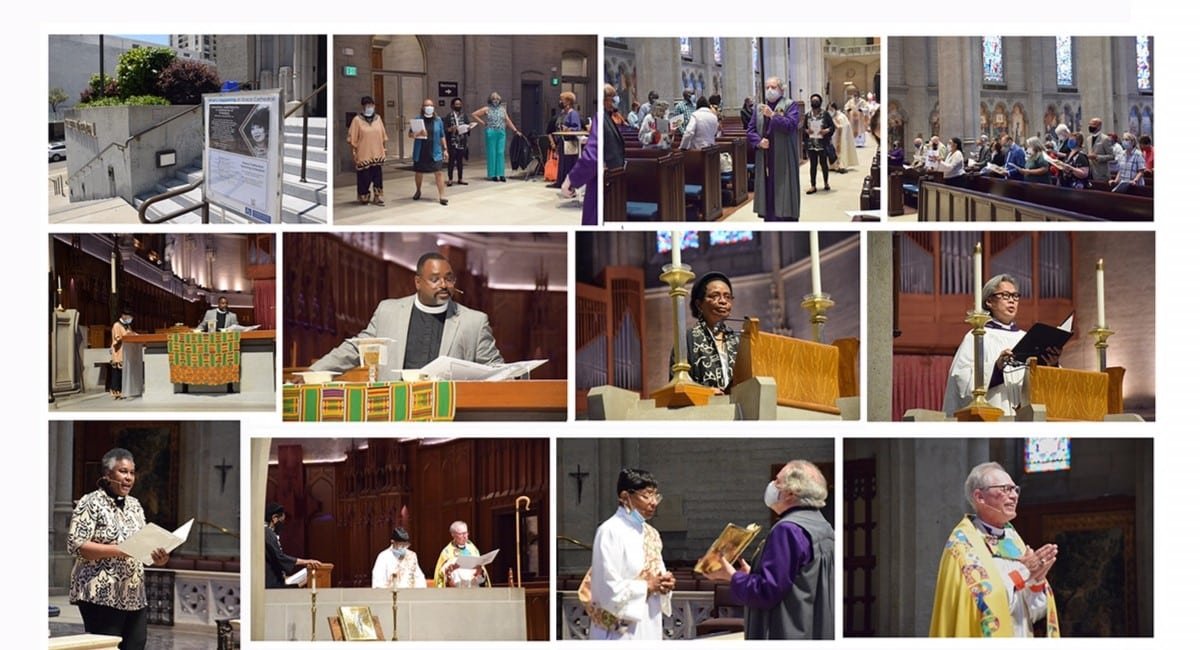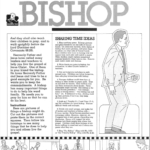[ad_1]
The Juneteenth Diocesan Feast Day and liturgy grew out of a Diocese of California Resolution passed in 2021. The resolution championed promoting understanding and inclusion of every human being, working toward the elimination of oppression and all forms of modern-day slavery, and eradicating racism. It aimed to move the diocese toward reconciliation and healing.
The Significance of Juneteenth
The resolution also provided an opportunity to share within our communities a greater understanding of the meaning of the Emancipation Proclamation and the 13th Amendment in abolishing racism, slavery and involuntary servitude of the past, modern-day slavery, and involuntary servitude that still exists today in this country. Juneteenth continues to represent both the day when all the people who were enslaved in Texas finally heard the news of freedom and also the ongoing struggle of the African American community over centuries to win freedom in the United States.
The timing for the resolution was ripe for bringing greater awareness to these issues, particularly because in the first half of 2020 the country was struggling with the unconscionable acts and senseless and horrific killings of George Floyd, Breonna Taylor, Ahmaud Arbery, and countless other Black and Brown persons. Senseless kills that continue today.
The three of us who collaborated to develop the Juneteenth liturgy believed it was important for the church to move forward in working for change and to join the fight to eradicate the systemic racism that has plagued our country as well as the church. The Juneteenth liturgy has become part of the Diocese of California’s Becoming Beloved Community efforts to “respond to racial injustice and grow a community of reconcilers, justice makers, and healers.” It is also a way for the church “to proclaim by word and example the Good News of God in Christ,” as our Baptismal Covenant says (Book of Common Prayer, 305), and to publicly acknowledge things done and left undone. It is a step toward fostering healing, reconciliation, and justice.
Developing a Liturgy to Remember Those Forgotten
Putting together the liturgy for the inaugural Juneteenth Feast Day Celebration at Grace Cathedral in San Francisco on June 19, 2022 was both thrilling and daunting. Our team of Rev. Deacon Alberta Buller, Rev. Dr. Mauricio Wilson, and Jeanette Dinwiddie-Moore worked together closely to create the liturgy. This was not something that a vocational deacon and layperson in the Episcopal Church are typically asked to do, and a question that came up for us was: “Are we good enough to do this?” However, we spent time in prayer discerning God’s call for us. Our answer was, like the prophet Isaiah’s, “Here we are, Lord” (Isaiah 6:8).
Our theme and callings were to care for those who have been forgotten. The enslaved people of Galveston were not only forgotten in 1863, but they continue to be ignored today. The task that lay before us was this: How could we best bring their story to light in liturgy? We felt their eyes upon us and didn’t want to disappoint them.
Beginning with this commitment, we spent considerable time pouring over scriptures, liturgies, prayers, and other materials from various sources that called to us. If you read through the liturgy, you will find, from beginning to end, that the focal point is this: Let’s remember the harm that was done in ages past as well as the harm that continues today, and let us recognize how we have all benefited from that harm. As the Morning and Evening Prayer Confession in Enriching Our Worship says, “We repent of the evil that enslaves us, the evil we have done, and the evil done on our behalf.”
Our quest began by searching through other liturgies. We gleaned from them what we believed best conveyed our focal point. We were also careful to note our sources and give credit as appropriate. Our proposed Juneteenth Feast Day liturgy received approval from our Diocesan Committee on Liturgy without changes and was approved for use in April 2022.
Who Should Use This Liturgy
When we started the work on this liturgy our minds were set on offering the Diocese of California a way to express through worship our commitment to racial reconciliation. Our conversations led us to the important realization that we should offer it as a liturgical resource for all congregations in the diocese to use, not only on the Sunday closest to June 19, but also on other occasions in which the continued struggles for racial and social justice call God’s people together.
We also want to offer it to the whole Episcopal Church community with the clear understanding that differing historical contexts, dates, and stories of emancipation and liberation make up the history of the institution of slavery in this country. Many may be unaware of the significance of Galveston, Texas and June 19, but they are probably familiar with another community and other dates that share the same the same focal point. We hope that this liturgy can be adapted to those realities and needs.
Juneteenth Liturgy
The Juneteenth Liturgy is available on the Episcopal Formation in the Bay Area website. You can access both a web version and a downloadable document through this link: Juneteenth Liturgy
Editor’s Note: Please credit the authors as well as the Vivian Traylor Chapter of the Union of Black Episcopalians when you use it.
Featured image collage of the inaugural Juneteenth Feast Day celebration in the Diocese of California at Grace Cathedral in San Francisco is provided by author Jeanette Dinwiddie-Moore
[ad_2]
Source link







You must be logged in to post a comment.